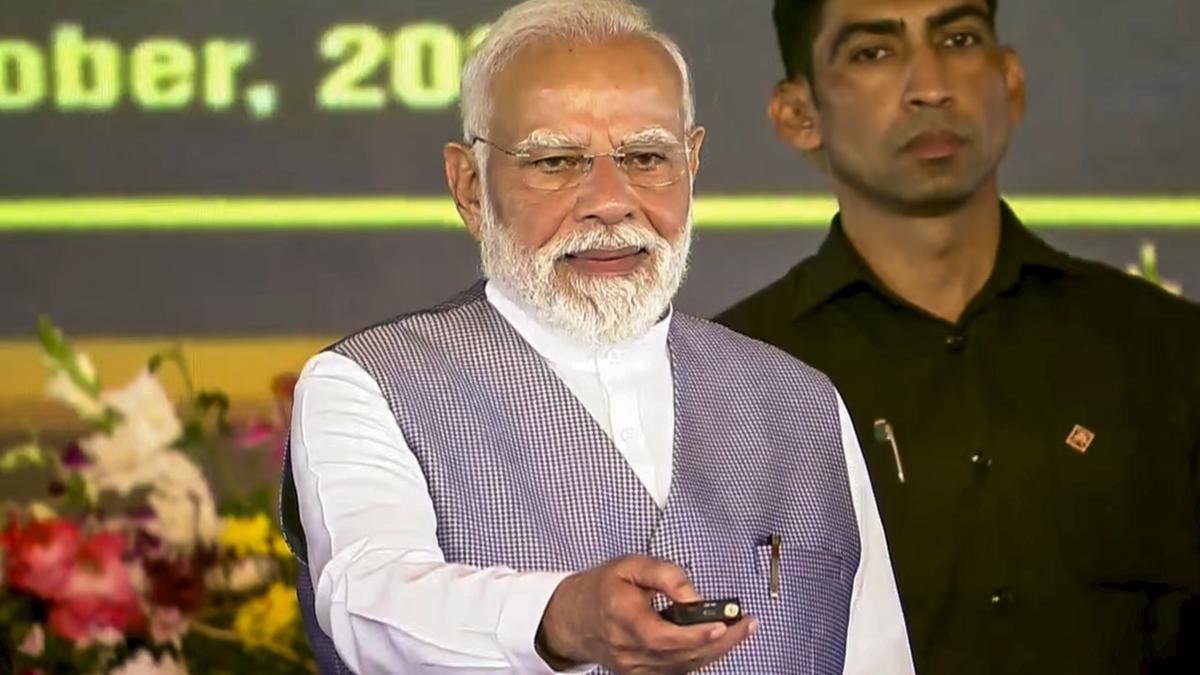ARTICLE AD BOX
Last Updated:October 15, 2025, 17:51 IST
Potholes are a persistent menace on Indian roads, causing accidents, vehicle damage, and even fatalities but is there an end to it? Know the what legal rights citizens have

Official data reveals that potholes alone claimed 2,161 lives in 2023, marking a 16.4 percent increase from the previous year (Image: Getty)
Roads in India connect over 1.4 billion people across nearly 6 million kilometres, are increasingly becoming extremely dangerous. Official data from the Ministry of Road Transport and Highways (MoRTH) reveals that potholes alone claimed 2,161 lives in 2023, marking a 16.4 percent increase from the previous year.
In that same year, nearly 1.73 lakh people died on Indian roads, equivalent to one death every three minutes. Of these fatalities, speeding accounted for 68 percent, while wrong-side driving and lane indiscipline caused another 5.5 percent. However, the silent killer that receives far less attention is road neglect especially potholes.
In 2017, India recorded 9,423 pothole-related accidents, resulting in 3,597 deaths and over 25,000 injuries, according to MoRTH’s “Road Accidents in India" report. Though figures briefly dipped during the pandemic in 2020 due to restricted travel, deaths surged again by 2023, indicating systemic failure in road governance. Uttar Pradesh and Madhya Pradesh recorded the highest number of pothole fatalities, while urban centres such as Mumbai and Bengaluru continue to struggle with recurring road damage despite high municipal budgets.
The impact of bad roads extends beyond numbers. It disrupts livelihoods, burdens hospitals, and exposes the inefficiency of civic bodies tasked with maintenance. The question that follows is both urgent and universal, can citizens hold the government accountable for such preventable losses?
Why Are Indian Roads So Prone to Potholes and Damage?
The reasons are both structural and administrative. India’s varied climate, with alternating cycles of monsoon downpour and scorching heat, creates ideal conditions for road erosion. Poor-quality materials, inadequate drainage, and delayed maintenance amplify the problem. A 2022 audit by the Comptroller and Auditor General (CAG) revealed that more than 30 percent of newly constructed urban roads required repair within one year of completion.
Frequent digging by utility agencies often without coordination between departments further weakens road surfaces. Experts at the Central Road Research Institute (CRRI) argue that while road-building standards exist, their enforcement remains inconsistent across states. As a result, maintenance becomes reactive rather than preventive.
What Are the Legal Implications of Accidents Caused by Potholes?
Under Indian law, municipal authorities are legally bound to maintain roads within their jurisdiction. Failure to do so can amount to negligence. The State is liable in tort for acts or omissions by its servants, including neglect in public safety. This principle was reaffirmed by the Supreme Court of India in State of Rajasthan v. Mrs Vidyavati, which held that the State could be sued for tortious acts of its employees under Article 300 of the Constitution of India.
In another landmark case, S. Rajaseekaran vs Union of India (2018), the Supreme Court directly addressed the menace of pothole-related deaths. It observed that municipal authorities had failed to discharge their duties, resulting in avoidable fatalities. The Court also cited reports showing that deaths caused by potholes had outnumbered those caused by terrorist attacks, a grim reflection of administrative apathy. Consequently, the Court clarified that families of victims were entitled to claim compensation for such deaths as tortious claims.
In simple terms, this means that when a road accident occurs due to poor maintenance, the responsible civic body or state agency can be held liable in law.
Who Is Responsible for Maintaining Road Safety In India?
Responsibility depends on the location of the road. Within city limits, municipal corporations or local development authorities handle maintenance. State highways fall under the purview of the Public Works Department (PWD), while national highways are managed by the National Highways Authority of India (NHAI).
In some cases, private contractors or concessionaires engaged under public–private partnerships are accountable for upkeep. If these entities fail to meet maintenance obligations as per their contract, they can also be held liable for accidents caused by poor conditions.
For citizens, this means identifying the correct agency is the first step before filing a complaint or compensation claim.
What Kind of Compensation Can Victims or Families Claim?
Compensation depends on the nature of the damage and can include:
Medical Expenses: Full reimbursement of hospitalisation, medication, and treatment costs.
Loss of Income: Compensation for wages lost due to injury or disability.
Pain and Suffering: Damages for emotional distress, trauma, or loss of quality of life.
Vehicle Damage: Reimbursement for repairs or replacement due to the accident.
Courts assess these claims based on documented evidence such as medical reports, police FIRs, and proof of road negligence.
How Can Citizens Report Potholes or Bad Roads?
Several government platforms now enable citizens to directly report potholes or unsafe road conditions:
CPGRAMS (Centralised Public Grievance Redress and Monitoring System):
- Website: pgportal.gov.in
- Available 24×7 across all ministries and departments. Many users report successful pothole repairs within days of filing complaints.
Meri Sadak App (under PMGSY):
- Available in English, Hindi, and Odia.
- Allows users to upload geo-tagged photographs of potholes.
- Over 1.6 lakh complaints registered to date, covering both rural and urban roads.
UMANG App:
- Integrates central and state grievance portals into one interface for easier tracking.
- Timely reporting not only helps fix roads faster but also serves as recorded evidence in case legal action becomes necessary.
How To Claim Compensation For Accidents Due To Poor Road Conditions?
Victims or their families can file a claim under the law of torts and Article 300 of the Constitution of India, which allows suits against the government for negligence. The Motor Accident Claims Tribunal (MACT) is often the appropriate forum for such cases.
The process generally involves the following steps:
Document the Accident:
- Capture photos or videos showing the pothole and the damage caused.
- Collect witness statements if available.
File a Police Complaint:
Register an FIR stating the road defect as the cause of the accident.
Seek Medical Documentation:
Obtain all relevant reports, bills, and medical certificates.
File a Claim at MACT:
Include the police report, medical records, and photographs as evidence.
Serve Notice to the Authority:
Issue a formal notice to the municipal corporation or state department responsible for road maintenance before filing a lawsuit.
If negligence is proven, courts have the power to order financial compensation to the victims or their families. In cases of serious administrative failure, courts may also direct departmental action against responsible officials.
In 2021, the Bombay High Court directed the Brihanmumbai Municipal Corporation (BMC) to pay compensation to the family of a motorcyclist who died after hitting a pothole, ruling that the civic body had “failed in its fundamental duty of maintaining public roads." Similarly, in 2022, a Delhi resident received damages after sustaining injuries caused by an unrepaired road trench. These cases demonstrate that accountability, though slow, is achievable through persistence and documentation.
How Can India Prevent Future Pothole Deaths?
Experts recommend a combination of infrastructure reform, technology integration, and stronger accountability. The use of durable road materials such as polymer-modified bitumen, real-time monitoring using drones, and public dashboards for tracking repairs can reduce maintenance delays. Transparency in municipal contracts and citizen-led audit systems are also crucial.
Road safety advocates argue that potholes are not an unavoidable consequence of weather but a failure of planning and oversight. As Supreme Court judges have remarked, “Every death caused by a pothole is a death by negligence."
While India’s economic growth depends heavily on its transport network, the human cost of bad roads remains staggering. The data is clear: over 2,000 people died from pothole-related crashes in 2023, most of them young adults aged between 18 and 45.
Until local authorities, contractors, and citizens share equal responsibility for maintenance, the country’s roads will remain both lifeline and hazard.
First Published:
October 15, 2025, 17:51 IST
News india India’s Pothole Problem: How Citizens Can Demand Accountability And Legally Claim Compensation
Disclaimer: Comments reflect users’ views, not News18’s. Please keep discussions respectful and constructive. Abusive, defamatory, or illegal comments will be removed. News18 may disable any comment at its discretion. By posting, you agree to our Terms of Use and Privacy Policy.
Stay Ahead, Read Faster
Scan the QR code to download the News18 app and enjoy a seamless news experience anytime, anywhere.


 1 day ago
5
1 day ago
5








 English (US) ·
English (US) ·